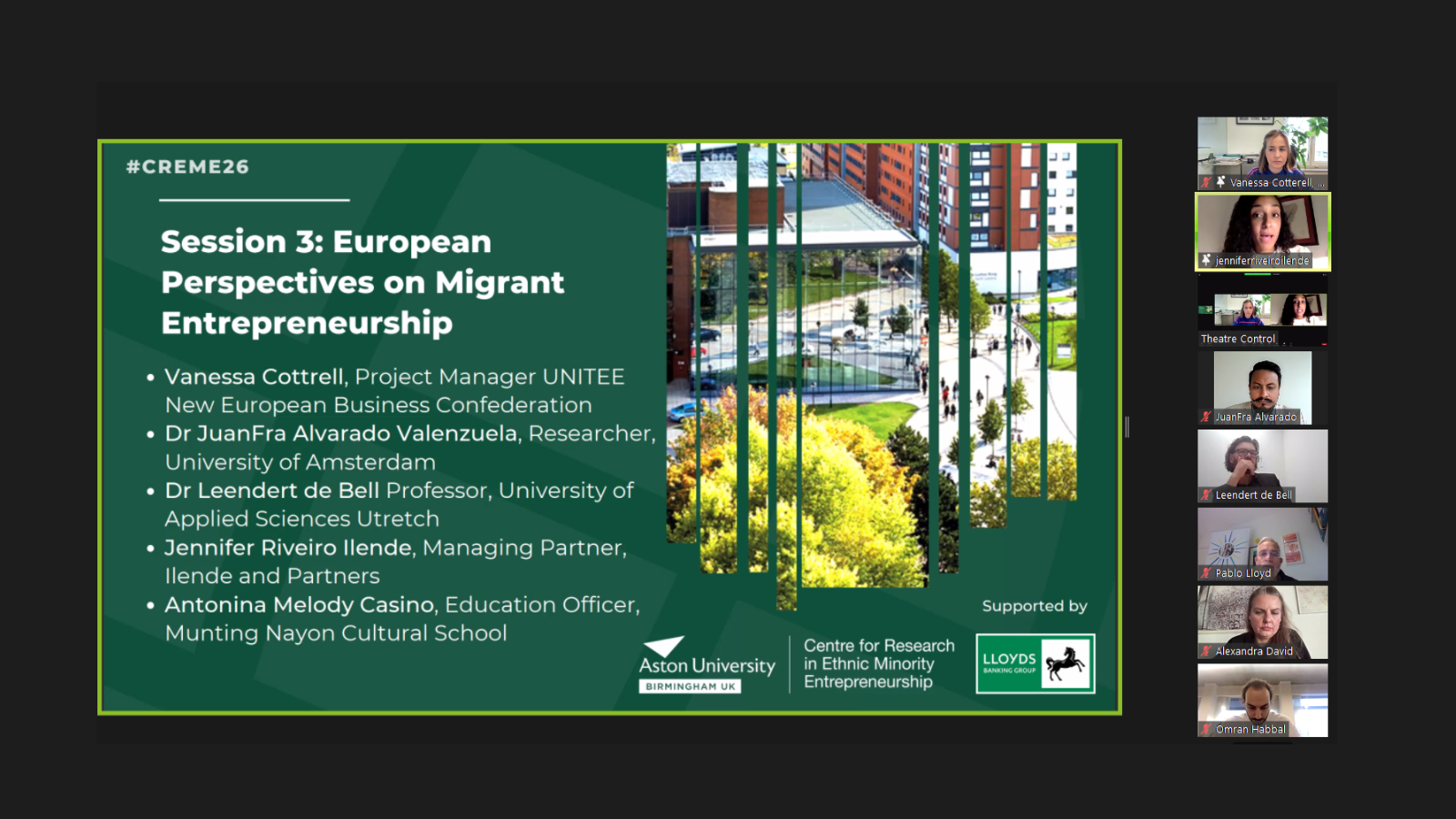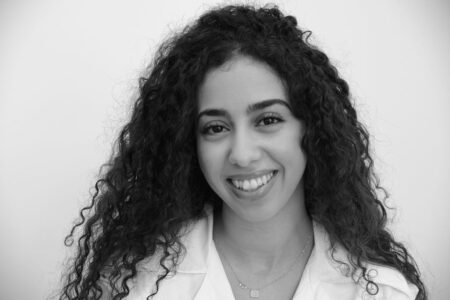
On 10 November, UNITEE, as a partner of the MILE project (Migrant Integration through Locally designed Experience) , joined the 26th Annual Conference of CREME (the Centre for Research in Ethnic Minority Entrepreneurship) to host a session on “European Perspectives on Migrant Entrepreneurship”.” CREME is one of MILE’s local partners in the UK, together with the Birmingham City Council and Ashley Community & Housing LTD, a service provide for migrants and refugees.
The session focused on the challenges and opportunities for the inclusion and growth of migrants and refugees through entrepreneurship, with the contribution of speakers from Madrid, Athens, Utrecht, and Amsterdam.
Dr. JuanFra Alvarado Valenzuela, researcher and educator in entrepreneurship at the University of Applied Sciences of Amsterdam, presented his key findings on the migrant entrepreneur community in the Dutch capital. Valenzuela brought interesting insights on several key topics related to migrant entrepreneurship, from the importance of family ties that often create transnational networks to the lack of role models for migrant entrepreneurs. Amsterdam represents a unique case due to its vibrant entrepreneurial culture and diversity. Diversity in migration, as Valenzuela highlighted, is often considered from the point of view of the country of origin, but it can be seen in many more indicators (e.g. place of residence, age or gender). For this reason, migrant and refugee entrepreneurs are themselves the “diverse group”, in comparison to the local context.
When it comes to the integration of migrant entrepreneurs, one question that immediately comes up is: How does this diverse group interact with the local social fabric, especially the network of local entrepreneurs? The level of connection between them is uncertain but the situation has evolved in recent years. Gradually, local and migrant entrepreneurs seem to have established a certain degree of interaction, whereas just one or two decades ago they were worlds apart.
The second speaker of the session was Dr Leendert de Bell, professor for sustainable labour participation of refugees at the Research Centre for Social Innovation (University of Applied Sciences Utrecht) and academic staff member at the Centre for Entrepreneurship (Utrecht University). De Bell has also been involved in the development and implementation of the entrepreneurship program at ‘Plan Einstein’, an initiative aiming to facilitate the integration of refugees in Utrecht.
Plan Einstein is a project which aims to connect residents of the Utrecht Asylum seekers centre and local communities. Within the project, various activities are organised for, by, and with migrants and refugees, in an effort to connect groups that often do not have a space and a chance to meet. Plan Einstein started in 2015 as a response to the growing number of refugees arriving in Europe. The project was launched, with the support of European funds UIA and ERDF in 2016.
One of the activities organised by the project are entrepreneurship courses, open to locals and refugees, to offer participants knowledge, contacts and skills to set up a business. In 3 years, over 200 participants took part in the training. Nevertheless, refugee and asylum seekers who approached the course had to overcome several obstacles related to the lack of knowledge of the specific local market, network, and access to finance. Many of the refugees also had no whatsoever experience related to business, as they were often employed in the public sector in their country of origin. However, these training proved to be an innovative and effective way to include newcomers and connect them with locals.
Meanwhile, Antonina Melody Casino, member of DIWATA (Determined Independent Women in Action for Total Advancement) shared her experience as a migrant woman and teacher at the Munting Nayon Cultural School in Athens, Greece. Munting Nayon is a multicultural school established by the female Filipino community back in 1994. Despite limited resources, it attempts to meet the needs of migrant parents working full-time. During its first years, Munting Nayon mostly welcomed children of Filipino migrants, but gradually evolved, becoming a multicultural school. Mr. Casino highlighted how initially their work was hampered by locals until being asked to shut down, but thanks to the support from privates and NGOs they were able to keep running. Munting Nayon Cultural School, being an example of solidarity and social entrepreneurship, now welcomes children of migrants from Africa (Ghana, Nigeria, Kenya, Sierra Leone, Liberia, Ethiopia, Eritrea), Asia (Sri Lanka, Bangladesh, Pakistan, India, Philippines) and the Balkans (Albania, Bulgaria, Romania, Ukraine).
Jennifer Riveiro Ilende closed the session by giving an overview of the situation of migrants in Spain. As a migration and immigration lawyer she is exposed daily to the struggles migrants face as they try to settle in Spain. From legalising their status to finding a job, newcomers are faced with many hardships. Mr. Riveiro set up a law firm, ILENDE&Partners, to help migrants settle in Spain including by starting their businesses.
Some of the obstacles migrants may face when starting a business are related to the high rate of taxation to which businesses are subject, bureaucracy and language barriers. The most vulnerable group of third country nationals in Spain is represented by North Africans; the procedures to have their status legalised, a prerequisite to start working and thus integrating, are very long and complex.
The stories and first-hand experiences of the four speakers complemented the insights shared during the conference which included sessions looking at the value of ethnic minority entrepreneurship, diaspora entrepreneurs as international trailblazers and crisis and renewal in key sectors. CREME’s work and events such as these are crucial when advancing the debate on the role of migrant entrepreneurship in our societies.


